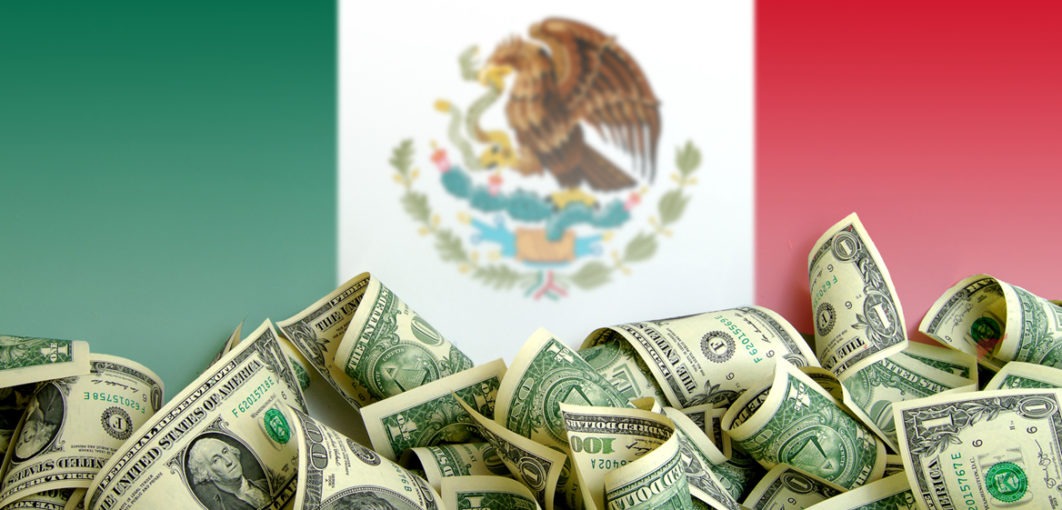Debt Recovery in Mexico: A Guide for Businesses
Debt recovery in Mexico presents unique challenges and opportunities for businesses, especially those operating on a cross-border or B2B basis. Understanding the legal, cultural, and practical aspects of debt collection in this region is crucial for maintaining financial health and fostering successful international partnerships.
Table of Contents

Understanding the Mexican Debt Collection Landscape
Contrary to the perception of reduced regulations, Mexico has a structured legal framework governing debt collection practices, especially concerning commercial debt. This framework is designed to protect consumers and businesses from wrongful or illegal collection efforts, which can include acts of intimidation, harassment, or violence, as well as the use of false documentation. Notably, several states and the federal government have enacted legislation that criminalizes illegal debt collection practices, with sanctions ranging from fines to imprisonment.
Foreign entities engaging in debt collection efforts in Mexico must be aware that they are subject to these regulations. The Federal Consumer Protection Office (PROFECO) has the authority to initiate proceedings against wrongful debt collection practices, and while there have yet to be confirmed cases of sanctions imposed on foreign firms, the potential for legal liability exists.
Key Strategies for Effective Debt Recovery in Mexico
1. Understanding Legal Provisions
Imprisonment for civil or commercial debts is prohibited in Mexico, focusing the creditor’s recovery efforts on the debtor’s assets. This highlights the importance of leveraging legal avenues that target asset recovery rather than punitive measures against the debtor.
2. Engaging Professional Debt Collection Services
Given the complexities of the Mexican legal system and the potential for legal liability, engaging with professional debt collection agencies or legal firms that specialize in Mexican debt recovery can be a prudent strategy. These professionals are well-versed in local laws and customs, enabling them to navigate the collection process more effectively while minimizing the risk of legal repercussions for wrongful collection practices.
3. Documentation and Formal Demand Letters
Proper documentation is crucial in debt recovery efforts. Contracts, invoices, order forms, and any correspondence should be meticulously maintained to support the collection process. Additionally, under Mexican law, a formal demand for payment is a necessary step before initiating legal action. This demand not only serves as a prerequisite for legal proceedings but also as a strategic tool to prompt payment from the debtor.
4. Navigating Legal Actions
Should amicable collection efforts fail, pursuing legal action becomes necessary. It’s essential to have a comprehensive understanding of the statute of limitations for debt collection in Mexico, as well as the necessary documentation to support the claim. Legal actions should be considered carefully, weighing the potential costs against the likelihood of successful debt recovery.
Mitigating Risk: Proactive Strategies
To mitigate the risks associated with debt recovery in Mexico, businesses should consider several proactive strategies:
- Demand Payment Before Shipment: One effective method to avoid collection complications is to require payment before shipping goods or services.
- Utilize Promissory Notes and Thorough Documentation: Requiring customers to execute a promissory note and maintaining comprehensive documentation for all transactions can provide leverage in debt recovery efforts.
- Issue a Formal Demand Letter: Under Mexican law, a debtor isn’t required to pay unless a formal demand is made. This step can serve as leverage in negotiations and may prompt quicker settlement.
Legal Considerations and Collection Agencies
When internal collection efforts fail, engaging a professional debt collection agency or pursuing legal action may become necessary. Agencies like Mxcollections Servicios and
STA Corporation Mexico specializes in international debt recovery, including navigating the complexities of the Mexican legal system and business practices. These agencies can provide valuable assistance, from issuing demand letters to representing creditors in legal proceedings.
The Importance of Local Expertise
Engaging with local legal experts or collection agencies can significantly enhance the success of debt recovery efforts in Mexico. These professionals understand the local legal environment, business culture, and language, enabling them to navigate the collection process more effectively. For instance, Expertplanet’s “SMART” Debt Collection Process outlines a tailored approach to debt recovery in Mexico, emphasizing the importance of local legal expertise and strategic creditor actions.
Evaluating the Cost-Benefit Ratio
Before pursuing collection efforts in Mexico, businesses should carefully consider the potential costs and benefits. In cases where the outstanding invoice is small or significantly overdue, the expenses associated with recovery may outweigh the potential gains. It’s crucial to assess each situation on a case-by-case basis to determine the most prudent course of action.
Amicable Collection vs. Court Litigation in Mexico:
When it comes to debt recovery in Mexico, creditors have the option to pursue amicable collection efforts or to escalate the matter to court litigation. Each path has its own set of strategies, potential outcomes, and considerations that must be weighed carefully to determine the most effective approach for debt recovery.

Amicable Collection in Mexico
Amicable collection, also known as out-of-court collection, is the initial phase of the debt recovery process where efforts are made to recover the debt without legal proceedings. This approach is generally faster, less costly, and aims to preserve the business relationship between the creditor and the debtor.
Key Strategies for Amicable Collection:
- Direct Communication: Engaging with the debtor through phone calls, emails, and letters to negotiate payment.
- Physical Presence: Having a local presence in Mexico can be crucial for making an impact on the debtor and demonstrating the seriousness of the collection efforts.
- Ethical Conduct: Ensuring all collection practices comply with Mexican regulations to avoid legal repercussions and maintain a positive reputation.
- Contingency Fee Model: Many collection agencies offer a “No Win, No Fee” arrangement for amicable collection efforts, which aligns their interests with the creditor’s success.
Court Litigation in Mexico
If amicable collection efforts fail, creditors may consider court litigation as a means to enforce debt recovery. This process involves filing a lawsuit against the debtor and can lead to a court judgment that legally obligates the debtor to pay the outstanding debt.
Considerations for Court Litigation:
- Legal Costs: Litigation can be expensive, and creditors must consider whether the potential recovery justifies the costs involved.
- Time-Consuming Process: Legal proceedings in Mexico can be lengthy due to procedural complexities and court backlogs.
- Enforcement of Judgments: Winning a court case does not guarantee payment; creditors may still face challenges in enforcing the judgment against the debtor’s assets.
- Statute of Limitations: Creditors must be aware of the statute of limitations for filing a lawsuit, which can vary depending on the type of claim.
Making the Decision: Amicable vs. Court
The choice between amicable collection and court litigation depends on several factors:
- Debt Amount: The size of the debt should be weighed against the potential costs and time required for litigation.
- Debtor’s Financial Situation: The debtor’s ability to pay and the likelihood of asset recovery should be assessed.
- Documentation: Proper documentation is essential for both amicable and legal collection efforts.
Preservation of Business Relationships: Amicable collection is often preferred for maintaining ongoing business relationships.
What are the disadvantages of court-based debt collection in Mexico

1. Inefficiency and Ineffectiveness
The legal process for collecting debts in Mexico can be inefficient and ineffective, leading to a long and potentially frustrating experience for creditors. The procedural complexity and the potential for lengthy delays can make the process daunting and uncertain.
2. Procedural Complexity
Mexican debt collection proceedings can be complex, with numerous injunctions and appeals possible, which can lead to an entangled judicial process. This complexity can drag out the proceedings for years, making it difficult to enforce a judicial decision.
3. High Costs
The costs associated with litigation can be significant, sometimes amounting to a substantial percentage of the claim’s value. These costs can include legal fees, court costs, and enforcement expenses, which may make the pursuit of smaller debts economically unfeasible.
What is the success rate of court-based debt collection in Mexico
Much lower than Amicable Collection typically around 40% the success rate of Amicable Collection is +95%






